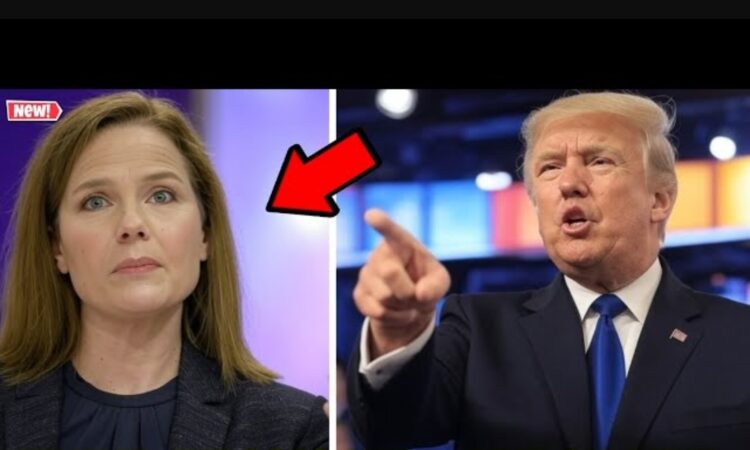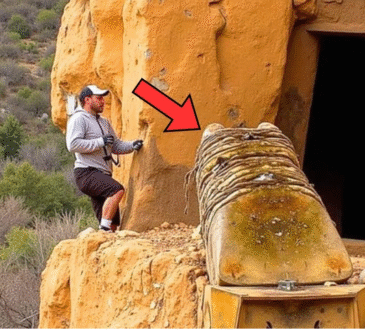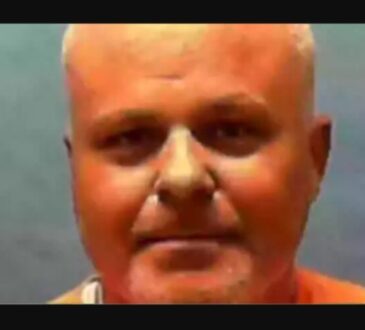
In an unprecedented live studio address, President Donald Trump delivered a fiery condemnation of Supreme Court Justice Amy Coney Barrett, alleging a pattern of politically motivated rulings that threaten the integrity of the judiciary. The broadcast, which left the studio audience in stunned silence, could mark a seismic shift in America’s legal and political landscape.
The atmosphere was electric as Trump took the podium, his usual confident demeanor replaced by a grave intensity. “My fellow Americans,” he began, “I did not come here today to play politics. I came to tell you the truth.” His words hung in the air, heavy with implication.
For years, Trump argued, the Supreme Court has been regarded as a bastion of impartiality. But now, he claimed, that trust has been shattered—by none other than Justice Barrett herself. “Her decisions,” he declared, “are not guided by law, but by political motives.”
The bombshell moment came when Trump produced a thick folder of documents, marked Confidential. “I have here undeniable proof,” he said, holding up what he described as evidence of secret communications, financial ties, and rulings allegedly influenced by outside political forces. The studio cameras zoomed in as he displayed handwritten notes, donor records, and case files—each, he claimed, painting a damning picture of judicial corruption.
One document, he said, revealed a private letter from Barrett to a political strategist, reading: “We must ensure the outcome aligns with the broader agenda.” Another detailed late-night meetings with powerful donors just days before critical rulings.
The emotional weight of the moment was palpable. Trump, his voice thick with conviction, spoke directly to the American people—particularly the elderly, veterans, and working families who had placed their faith in the courts. “I know this is painful,” he said. “But silence is no longer an option.”
As the broadcast continued, Trump wove a narrative of betrayal, highlighting cases where ordinary Americans—veterans denied benefits, families losing homes, small businesses crushed—had allegedly been failed by a justice system compromised by politics. His tone shifted between fury and sorrow, at one point holding up a letter from a grieving mother whose son had been denied justice.
“This is not about revenge,” Trump insisted. “It is about restoring the rule of law.”
The reaction was immediate. Social media erupted, newsrooms scrambled for analysis, and viewers across the nation—many in tears—grappled with the implications. For some, it was a vindication of long-held suspicions. For others, a heartbreaking revelation.
Trump’s final words struck a chord of defiance: “I will not rest until the truth prevails.”
The fallout from this explosive address is only beginning. Legal experts, politicians, and citizens alike are now left to confront a question that could redefine American justice: If the highest court is no longer above politics, what comes next?
One thing is certain—tonight, the battle for the soul of the judiciary has been declared. And Donald Trump, once again, has thrown the nation into uncharted waters.




